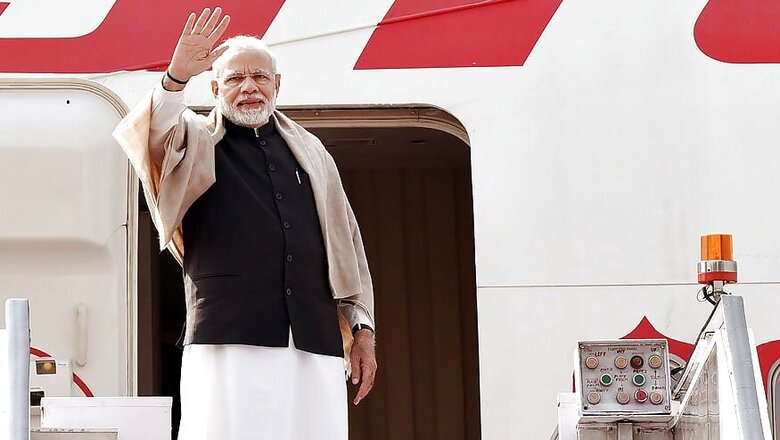
views
Prime Minister Narendra Modi is on a historic two-day visit to Palestine from February 10. The visit, first by an Indian PM, is part of new foreign policy approach being shaped under Narendra Modi, especially in the Middle East.
Modi has been proactive in reaching out to India’s “extended neighborhood” in the Gulf, where the core of Indian interest lies, but has also engaged extensively with the wider region. Significantly, Modi has de-hyphenated India’s relations with Israel and Palestine through proactive engagement and fine balancing. Hence, he hosted president Mahmoud Abbas before undertaking his standalone visit to Israel (July 2017) and is now visiting Palestine soon after the visit of Israeli Prime Minister Benjamin Netanyahu.
These engagements clearly indicate that New Delhi no longer sees Tel Aviv and Ramallah from the same prism and reinforces the fact that while India’s relations with Israel grows, it will not abandon the traditional support for Palestine. Modi’s approach is to engage with both Israel and Palestine independently and build India’s relations with both on its own merit.
India’s relations with Israel have been flourishing, evident from the hectic two-way traffic between Tel Aviv and New Delhi since May 2014. The bilateral relations have grown remarkably with traditional focus on defence and security continuing while cooperation in niche areas such as science and technology, agriculture, water treatment, environment conservation and irrigation adding new dimension.
What is new, however, is Modi’s open embrace of Israel. In the past, despite good relations, India shied away from public display of the bonhomie, mainly due to the convoluted Israeli-Palestinian conflict. PM Modi has not only engaged proactively with Israel but has added symbolism to the substance by embracing and travelling with PM Netanyahu during their respective visits.
At the same time, New Delhi has been engaging the Palestinian leadership with a number of bilateral visits taking place in the last four years. India has been steadfast in extending economic and developmental aid to Palestine and continues its political support for a two-state solution to resolve the Israeli-Palestinian conflict. This was reinforced when India voted in favor of the UNGA resolution condemning the US move to recognise Jerusalem as Israel’s capital.
With the PM’s visit, India’s position of supporting Palestine’s quest for statehood and its commitment towards development and well-being of Palestinian people has come to the fore. Hence, the focus of the historic visit is to enhance India’s assistance in Palestinian nation building process by extending help to build infrastructure and develop skills in areas of health, information technology, education, agriculture and sports.
Prime Minister Modi is expected to sign five agreements aimed at infrastructure building and employment generation. The emphasis is on nation building through aid and funding developmental projects. Thus, since 2014 India has helped build institutions such as a Techno Park in Ramallah, a Centre of Excellence in ICT in the Gaza Strip, a Digital Learning and Innovation Centre at Al Quds University. India has also committed to extend support in establishing educational facilities and constructed two schools in West Bank and two libraries in the Gaza Strip.
During the visit, PM Modi will inaugurate work on establishing the Palestine Institute of Diplomacy, which India is helping to build through a US$ 4.5 million aid.
The historic visit of the PM reveals India’s new approach toward Israel and Palestine. The two are now dealt separately at bilateral level and independent of each other. India wishes to take the relations with both Israel and Palestine independently without getting complicated by third party prisms.
(Muddassir Quamar is an associate fellow at the Institute for Defence Studies and Analyses (IDSA). Views are personal)




















Comments
0 comment